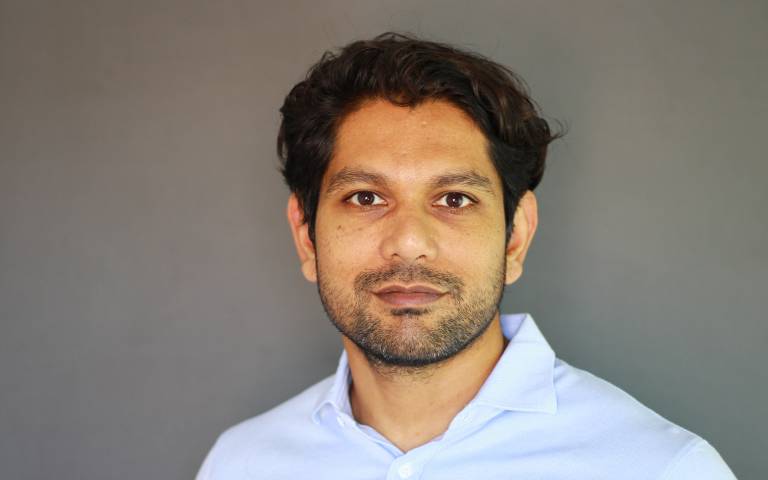Meet the expert: Associate Professor Aman Saleem

What attracted you to the area of experimental psychology and why is it important?
I think like most researchers - ‘curiosity’. I have always been curious about how the brain works, and the more I read about it, the more fascinated I got about the mysteries of brain function and neuroscience. I’m particularly driven by challenging unresolved problems, and there is no shortage of these in neuroscience.
Neuroscience and experimental psychology have been getting ever more important in recent years. One aspect is that we have an ageing population, thanks to advances in the medical field, and neurological disorders in the older population are a growing concern. So, understanding brain function in health and disease is vital. In parallel, we are almost in a pandemic of mental health, and an improved ability to tackle mental health issues is something else that underscores the importance of experimental psychology.
Can you tell us about your current research and the focus of your lab?
The lab’s research is focused on how multiple brain areas interact to enable specialised functions, with a focus on using vision for navigation. The lab performs recordings from multiple brain areas using large-scale electrophysiology while animals navigate controlled visual environments, in the form of virtual or augmented reality environments.
What aspect of your work most excites you and why?
Related to research, I find it really exciting to discover what drives neuronal activity, at pretty much any stage. For example, in the lab, when I am observing neuronal activity, discovering a visual pattern that causes neurons to fire a lot more is quite exciting.
At the other end of the spectrum, in many instances what the neurons are doing doesn’t make any sense and it all looks pretty random. And then at some point, hopefully, we realise that there was some particular feature that can explain what the neuron is doing, and everything that previously looked random now makes sense. Such discoveries, while rare, are really exciting.
A significant part of what I do is training and teaching students. It is actually exciting when you’ve trained someone in a technique, and a while later you discover that they are now better at it than you! (… sometimes it’s also annoying!)
What would you say to someone who is considering whether to study experimental psychology at UCL?
UCL Experimental Psychology is a fantastic department. It is probably obvious from all the rankings and other stats at it excels academically. But behind the scenes, it is also a really fun department to be in. So, talk to current and previous students about their real-life experiences in the department. Another thing that is great about the department is the breadth of topics it covers. You might enter the department thinking of doing organisational psychology, and then discover a greater passion for clinical psychology, or neuroscience. And whichever topic you find interesting, you probably have a world-expert of the topic at UCL.
What’s the best advice you would give your younger self?
There were many occasions when I was younger when I stressed about choices I had to make – how will it affect my future? is this what I want to do the rest of my life? In hindsight, I feel that as long as you are open to change, you can always drift into whatever you find interesting. I started with an undergraduate degree in Metallurgy and am now faculty in experimental psychology… they are pretty far apart, yet I found my passion. So, my advice would be: stay open and don’t think you are stuck with a choice for the rest of your life as it is unnecessary stress. This is especially true these days, when there is such a broad range of jobs available and many of them don’t have well defined entry paths anyway.
 Close
Close

